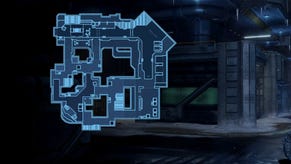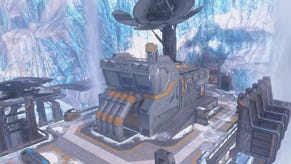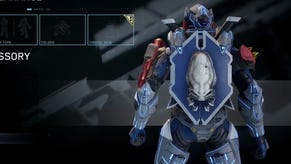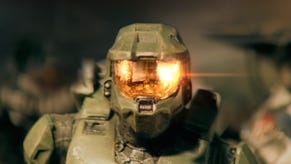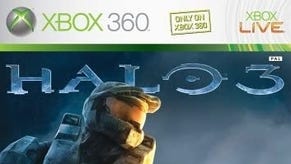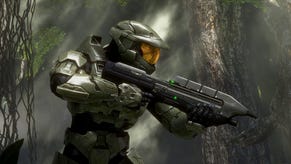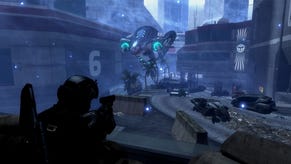Halo 3: Music to Watch Armageddon By
Marty O'Donnell on Finishing the Fugue.
'This is how the world ends, not with a bang but with a whimper'. So ends T. S. Eliot's 1925 poem, The Hollow Men, a sentence also chosen to start and conclude the Halo trilogy's overarching marketing campaign.
Except, of course, climactic whimpers and blockbusting action epics are uneasy bedfellows; who'd collapse their bombastic trilogy with a timid snivel when they could detonate it in a sea of apocalyptic pixel fire and awful noise? And so, to escape the confines of the poem's story but borrow its classy whiff of literary respectability, the line was cut in two, the second part discarded and the noisy drama of the trilogy's conclusion left to resound un-tempered.
But while the way in which Halo's world ends might have outplayed without much understatement or surprise, the series' soundtrack defies videogame convention, mostly underlining the action not with heavy metal bangs and testosterone but with the melancholy aahs of a pensive choir. First Person Shooters are about distorted guitars, guttural screams, double kick drum pedals and air-punching marines, not the ebb and swell of a minor key melody. In this sense, the game grasps some of the expectation-confounding surprise Eliot spoke of.
"Juxtaposition is a very powerful tool for the composer, one that's woefully underused in videogames," explains Marty O'Donnell, the bearded and kindly man behind this, one of videogaming's most memorable soundtracks. "When writing for an action game I think it's important not to take what is happening on screen for granted from a musical perspective. One must try something unexpected, something fresh and imaginative; something to interest the listeners without distracting them."
Eurogamer is sat with O'Donnell prior to the Videogames Live concert at the Royal Festival Hall. It's a curious event, started by the irrepressible videogame composer Tommy Tallarico. The world-touring concert employs local (and mostly bewildered) professional orchestras to perform some of gaming's most popular melodies to an audience made up of dedicated geeks and, perhaps, the odd curious classical music fan. 100 feet under the intermittent bulb flashes of tourist cameras aboard the London Eye, the master of melodic motif awaits his curtain call to lead the London Philharmonic Orchestra and Choir through pieces from Halo's well-loved soundtrack.
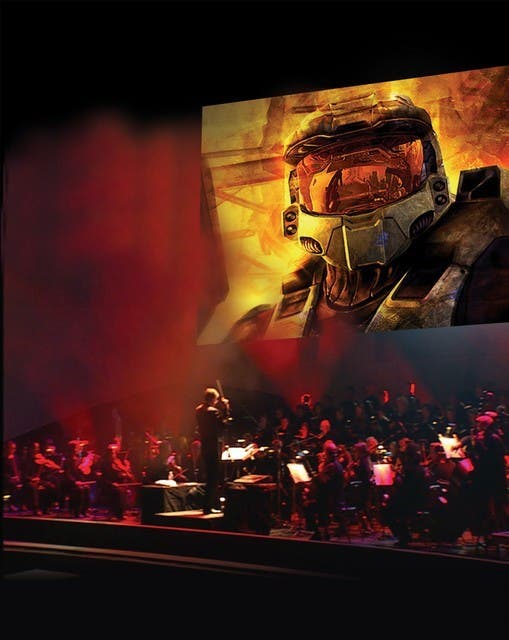
"Every game I've ever worked on I've fully believed will come to be regarded as the best one in all of history," he chuckles. "But as I sat behind closed doors in 1999 and saw the vision of the first Halo game I was...it was just so powerful. From the first I wanted that soundtrack to be epic. At that time only a tiny proportion of games employed live orchestras for their soundtracks; mostly it was midi orchestras to cut costs. I went to Bungie and pleaded. I said, if you can cover the costs I can get the Chicago Symphony Orchestra (I'd worked with them for a few advertisement projects in the past) and I will make something truly special. It paid off. That said, let it be known that I didn't turn a profit on the first game though..."
The first Halo game saw Master Chief propelled onwards through his solo mission by lively string and brass sections. In contrast the second game shifted to more guitar-orientated approach, even employing widdling fretnerd Steve Vai for some of its dive-bombing licks. The third game however marked a shift back to the orchestral roots of the series. Eurogamer wonders if this was always O'Donnell's intention? "Absolutely," he replies. "I took an orthodox, almost formal approach to the trilogy. If the first game was A and the sequel B then Halo 3 was A Prime. Each soundtrack is independent of one another but there's a formal structure going on there." He pauses. "Actually, to be honest, when I got to the end of Halo 2 I thought to myself: 'that was probably enough guitar.' It's hard to get that kind of perspective when you're knee-deep in a project but, once it's finished you step back and get that zoomed out view on things..."
Halo's soundtracks are rare in that almost every gamer who has played one of the games could pick out and hum two or three themes. Few are the videogames to achieve that. Ask a player to do the same with some of gaming's other big hitters - Half Life, The Elder Scrolls, Super Mario, Gran Turismo - and they'll likely falter after the first tune, if they even manage that. With so many memorable melodies Eurogamer asks if there's a moment in the game where the synergy between soundtrack and action work in harmony particularly well. "I find I always like the last thing I wrote the best - whatever that is," O'Donnell explains. "The final piece of music I wrote for Halo 3 was the cinematic that plays out after the end credits have rolled. I like the way the music brings a sense of closure with it, book-ending the trilogy in a pleasing way."
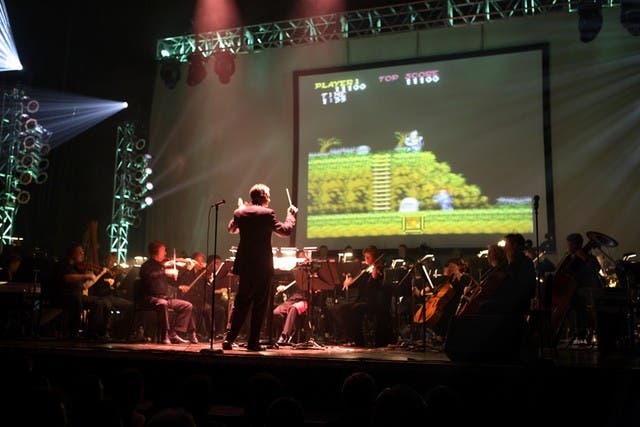
"That's not quite properly answering the question though. In terms of a piece of music that worked well in-game, well...hmm. In the first Halo there was a snow level set a night towards the end of the game. You climb into a banshee and fly up into the sky, snow blanketed mountains all around you. Whenever I play that section I'm surprised at how effective the music works with that scene. I think that's probably my favourite moment."
O'Donnell has been composing for many years, writing scores for a diverse range of products. Eurogamer asks as to what makes composing for videogames different. "I've written soundtracks for all manner of things from soft drink advertisements through to videogame soundtracks for the likes of Riven," he explains. "In every case my job is to invoke emotions that convince people to engage with the product. The core difference with a contemporary console title is the technology; in videogames players can now control the action on screen and so there needs to be dynamic flexibility in the way my compositions are presented. But essentially the basics of my job are the same whether it's inviting people to buy children's vitamins or kill swathes of brutes. The job is always to write thoughtfully and in an interesting way."
Even so, surely composing music to soundtrack the apocalypse must have added unusual pressure in the case of the most recent Halo game? "You know, we've done so many things with this series that have added pressure onto ourselves. It's almost like everything we've done has been over the top in terms of stress levels. I've reminded the team many times that, ultimately, we're not curing diseases here. Whatever game series you're working on, no matter how high profile it is and how high expectations are, it's still just entertainment. Expectations can only go so far because of that. It's a clichè but there comes a point when you realise you just need to have fun with what you're doing. In the end, we're not going to save anyone's life through it."


